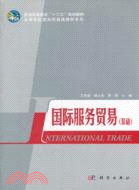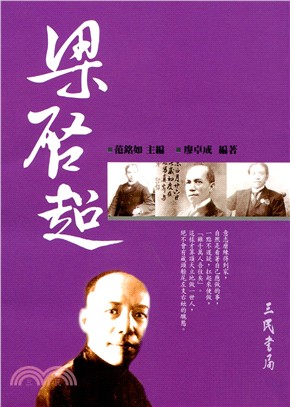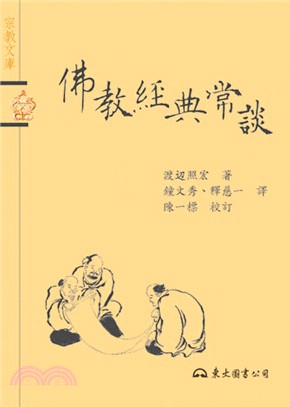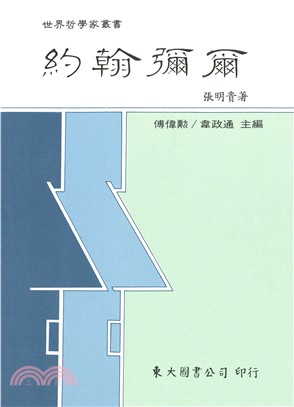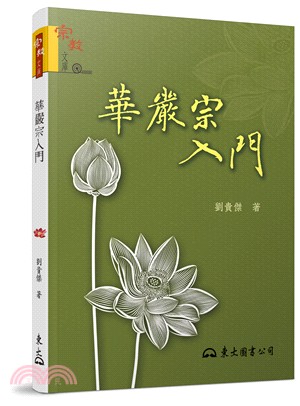國際服務貿易(雙語)(簡體書)
- 系列名:普通高等教育"十二五"規劃教材•高等院校國際貿易類教材系列
- ISBN13:9787030347459
- 出版社:科學出版社
- 作者:王西婭
- 裝訂/頁數:平裝/261頁
- 規格:26cm*19cm (高/寬)
- 出版日:2012/06/01
商品簡介
名人/編輯推薦
目次
1.1 Understanding ofservice(對服務的理解)
1.1.1 Definition ofscrvicc(服務的概念)
1.1.2 Characteristics ofservice(服務的特征)
1.1.3 Classifications ofservices(服務的分類)
1.2 Understanding of service industry(對服務業的理解)
1.2.1 Service industry andthe third industry(服務業與第三產業)
1.2.2 Service industryandmanufacturing industry(服務業與制造業)
1.2.3 Classifications of service industry(服務業的分類)
1.3 Understanding of trade in services(對服務貿易的理解)
1.3.1 Definition of trade in services(服務貿易的界定)
1.3.2 Characteristics of tzade in services(服務貿易的特點)
Key terms
Questions
Reading material
Chapter 2 Basic Categories of International Trade in Services(國際服務貿易的基本范疇)
2.1 Concept and characteristics of international trade in services(國際服務貿易的概念及特征)
2.1.1 Concept of international Wade in services(國際服務貿易的概念)
2.1.2 Similar concepts of international trade in services(國際服務貿易的相近概念)
2.1.3 Characteristics of international trdde in services(國際服務貿易的特點)
2.2 Classifications of international trade in services(國際服務貿易的分類)
2.2.1 Statistical classification ofintemalional Irdde in services(國際服務貿易的統計分類)
2.2.2 Logical classification of international trade in services(國際服務貿易的邏輯分類)
2.3 Statistics of international trade in services(國際服務貿易的統計)
2.3.1 Development of statistics of international trade in services(國際服務貿易統計的發展)
2.3.2 Statistical system of international trade in services(國際服務貿易統計體系)
2.3.3 China's statistics of international tradein services(中國國際服務貿易的統計方法)
Key terms
Questions
Reading material
Chapter 3 Theory of International Trade in Services(國際服務貿易理論)
3.1 Relative theory of service(服務相關理論)
3.1.1 Theory ofservice value(服務價值理論)
3.1.2 Utility value ofservice(服務效用價值理論)
3.2 Relative theory in service industry(服務業相關理論)
3.2.1 Petty—Clark Theorem(配第一克拉克定理)
3.2.2 Path theory on service development(服務業發展路徑學說)
3.3 Relative theory on trade in services(服務貿易相關理論)
3.3.1 Research on trade in services by traditional Wade theory(傳統貿易理論對服務貿易的研究)
3.3.2 Research on trade in services by modem trade theory(現代貿易理論對服務貿易的研究)
3.3.3 From comparative advantages to competitive advantages of trade in services(從服務貿易的比較優勢到競爭優勢)
3.3.4 Empirical analysis oftrade in services(服務貿易的實證分析)
3.3.5 Analysis of liberalization in services(服務貿易自由化的分析)
3.3.6 Analytical framework of trade in services(服務貿易分析框架)
Key terms
Questions
Reading material
Chapter 4 Policy of International Trade in Services(國際服務貿易政策)
4.1 Evolution of trade policy in services(服務貿易政策演變)
4.2 Policy of trade liberalization in services(自由服務貿易政策)
4.2.1 Trade liberalization and economic efficiency(自由貿易與經濟效率)
4.2.2 Welfare analysis of liberalization oftrade in services(服務貿易自由化的福利分析)
4.2.3 Policy selection of liberalization oflrade in services(服務貿易自由化的政策選擇)
4.3 Policy of protecting trade in services(保護服務貿易政策)
4.3.1 Trade in services barriers and types(服務貿易壁壘及類型)
4.3.2 Measure of trade in services protection level(服務貿易保護程度的衡量)
4.3.3 Comparison and selection of protective policy of trade in services(服務貿易保護政策的比較與選擇)
Key terms
Questions
Reading material
Chapter 5 Foreign Direct Investment(FDI)and Transnational Corporations ofService Industry(服務業的對外直接投資與跨國公司)
5.1 Overview of FDI and transnational corporations in service industry(服務業對外直接投資與跨國公司概述)
5.1.1 FDI ofservice industry(服務業對外直接投資)
5.1.2 Tmnsnational corporations in service industry(服務業跨國公司)
5.2 Theoretical analysis of reasons for development of FDI and transnational corporations in service industry(服務業對外直接投資和跨國公司發展動因的理論分析)
5.2.1 Applicability of traditional FDI theory in international trade in services(傳統對外直接投資理論在服務貿易領域的適用性)
5.2.2 Eclectic theory of international production(國際生產折中理論)
5.3 Organizational forms of transnational corporations in service industry(服務業跨國公司的經營組織形式)
5.3.1 Non—equity cooperation(非股權合作形式)
5.3.2 Equity cooperation(股權合作形式)
5.4 Effects of FDI and transnational corporations in service industry(服務業對外直接投資與跨國公司的影響)
5.4.1 Effects on the worlde economy(對世界經濟的影響)
5.4.2 Effects on parent country and host country(對母國及東道國的影響)
Key terms
Questions
Reading material
Chapter 6 Development of World InternationaI Trade in Services(世界服務貿易的發展)
6.1 Development of international trade in services(國際服務貿易的發展)
6.1.1 Characteristics of international trade in service development(國際服務貿易發展特點)
6.1.2 Development trend of international trade in servicgs(國際服務貿易發展趨勢)
6.2 Development of China's tradein services(中國服務貿易的發展)
6.2.1 Currentdeveloping situation of China's trade in services(中國服務貿易發展的現狀)
6.2.2 Characteristics of China's tradein services(中國服務貿易的特點)
6.2.3 Basic principles of services trade opening(服務貿易開放的基本原則)
6.2.4 Legislation on China's trade in services(中國服務貿易立法)
6.2.5 The development prospect of China's services wade(中國服務貿易發展展望)
Key terms
Questions
Reading material
Chapter 7 Agreements on International Trade in Services(國際服務貿易協議)
7.1 Introduction to General Agreement on Trade in Services(GATS)(總協定概述)
7.1.1 Background of GATS birth(GATS產生的背景)
7.1.2 Main purpose and basic rules of GATS(GATS的宗旨及其基本原則)
7.2 Review on General Agreement on Trade in Services(《服務貿易總協定》內容評述)
7.2.1 Structure and characteristics of GATS(結構與特點)
7.2.2 Contents of GATS(GATS的內容)
7.3 Main limitation and follow—up negotiations of GATS
(GATS的主要局限和后續談判)
7.3.1 Main limitation of GATS(GATS的主要局限)
7.3.2 Furthernegotialions of GATS(GATS的后續談判)
7.4 Regional agreements on trade in services(服務貿易的區域性協議)
7.4.1 Agreement on tradein services of EEC(歐盟服務貿易協議)
7.4.2 Agreement on trade in services in North—American free nade area(北美自由貿易區的服務貿易協議)
7.4.3 APEC agreements on trade in services(亞太經合組織的服務貿易協議)
Key terms
Questions
Reading material
Chapter 8 TraditionaI Trade in Services(傳統服務貿易)
8.1 Trade in transport service(運輸服務貿易)
8.1.1 Overview of principles for trade in transport service(運輸服務貿易原理概論)
8.1.2 Trade in marine transport service(海運服務貿易)
8.1.3 Trade in air transport service(航空運輸服務貿易)
8.1.4 Other transport service(其他運輸服務)
8.1.5 International wade in transport service(國際運輸服務貿易)
8.1.6 Chinatrade in transport Services(中國運輸服務貿易)
8.2 Trade in tourism service(旅游服務貿易)
8.2.1 Overview of principles of trade in tourism service(旅游服務貿易原理綜述)
8.2.2 Trade in tourism service under the context of knowledge economy(知識經濟環境下的旅游服務貿易)
8.2.3 Analysis of tourist service(旅游服務分析)
8.2.4 Vista of tourism(旅游業發展遠景)
8.3 Trade in financial service(金融服務貿易)
8.3.1 Concept oftrade in financial service(金融服務貿易的概念)
8.3.2 Financial industry development(金融業發展)
8.3.3 Analysis of trade in financial service(金融服務貿易分析)
8.3.4 Vista of financial industry(金融業發展前景)
8.4 Trade in insurance service(保險服務貿易)
8.4.1 Insurance service and world economy(保險服務業與世界經濟)
8.4.2 Development of insurance industry(保險業的發展)
8.4.3 Vmta of insurance industry(保險業發展前景)
Key terms
Questions
Reading material
Chapter 9 Emerging International Trade in Services(新興服務貿易)
9.1 Trade in technical service(技術服務貿易)
9.1.1 Status quo ofChina’S technical service opemg to the world(中國技術服務業的對外開放狀況)
9.1.2 Intellectual property challenges to China's trade in technical service(中國技術服務貿易面臨的知識產權挑戰)
9.2 Trade in computer and information services(計算機和信息服務貿易)
9.2.1 Status quo of China's computer and information services opening to the world(中國計算機和信息服務業的對外開放現狀)
9.2.2 ITO(Information Technology Outsourcing),a will-be highlight in China's infornmfion sentice(信息技術外包將成為中國信息服務業的新亮點)
9.3 Trade in professional service(專業服務貿易)
9.3.1 Trade in accounting service(會計服務貿易)
913.2 Trade in legal service(法律服務貿易)
9.3.3 Trade in medical service(醫療服務貿易)
9.3.4 Trade in consulting Service(咨詢服務貿易)
9.4 Offshore outsourcing of service(服務離岸外包)
9.4.1 Motivation for offshore outsourcing ofservice(服務離岸外包的動因)
9.4.2 Effects of offshore service outsourcing on host counlries(服務離岸外包對受包國的作用)
Key terms
Questions
Reading material
主要參考文獻
書摘/試閱
3.3.4.1 Empirical analysis of trade in services (服務貿易的實證分析)
1) In 1982, Sapir (撒皮爾) testified the application of comparative advantage to trade inservices after a series of positive analyses and illustrated the practical pattern of trade inservices decided by comparative advantage. He pointed out that the countries rich in physicalcapital own comparative advantage in the fields of transportation in trade in services, whereasthe ones rich in human capital possess comparative advantage in the fields of insurance andother private trade in services. Because of the prosperities for both physical and human capital,industrialized countries own overall comparative advantage in trade in services. Yet,comparative advantage in trade in services is not static. With the accumulation of physical andhuman capital in developing countries, there must be comparative advantage in certaindepartments in trade in services. In 1985, Sapir had a special inspection to theNorth-and-South Problem in trade in services, analyzed the trade structure in services andcomparative advantage pattern between developed countries and developing ones, emphasizedthe corporation strengthening between developed countries and developing ones to promotetogether the freedom of trade in services. In 1986, Sapir affirmed again dynamics ofcomparative advantage and affection of developing countries as potential exporters in trade inservices
2) In 1989, R. J. Langhammer (蘭格海默), observed and studied the relationship in trade inservices between developed countries and developing ones by the positive analysis of tradematerials in services in France, Germany, Japan and America. The main result is that the tradepatterns in services between developed countries and developing ones are closely related tofactor endowment.
3) In 1992, B.M. Hoekman (豪客曼) and G. Karsenty (卡森迪) analyzed comparativeadvantage in trade in services in income levels of different countries by the manner ofRevealed Comparative Advantage(現實性比較優勢法), According to their analyses, the morehigher the income level is, the greater the comparative advantage is. The countries with theaverage income above USD6000 own greater comparative advantage in trade in services, butthe countries with low income level possess comparative advantage in some departments intrade in services as well.
4) Based on the research of B.Chosh (高什) in 1997, developing countries keep aconstantly increasing status in the world trade in services: the proportion of world businessservice export in developing countries measured from 9.1% in 1970 to 12.9% in 1990, amongwhich Asia's proportion went from 2.4% up to 7.1%, In departments, the proportions of seatransportation service, passenger transportation and other transportation services, tourismservice, labor and ownership income and other services are respectively raised from 4.3%,9.5%, 15.2%, 4.6%, 7.8% up to 11.4%, 11.6%, 17.0%, 10.4% and 11.9%.
主題書展
更多主題書展
更多書展本週66折
您曾經瀏覽過的商品
購物須知
大陸出版品因裝訂品質及貨運條件與台灣出版品落差甚大,除封面破損、內頁脫落等較嚴重的狀態,其餘商品將正常出貨。
特別提醒:部分書籍附贈之內容(如音頻mp3或影片dvd等)已無實體光碟提供,需以QR CODE 連結至當地網站註冊“並通過驗證程序”,方可下載使用。
無現貨庫存之簡體書,將向海外調貨:
海外有庫存之書籍,等候約45個工作天;
海外無庫存之書籍,平均作業時間約60個工作天,然不保證確定可調到貨,尚請見諒。
為了保護您的權益,「三民網路書店」提供會員七日商品鑑賞期(收到商品為起始日)。
若要辦理退貨,請在商品鑑賞期內寄回,且商品必須是全新狀態與完整包裝(商品、附件、發票、隨貨贈品等)否則恕不接受退貨。




